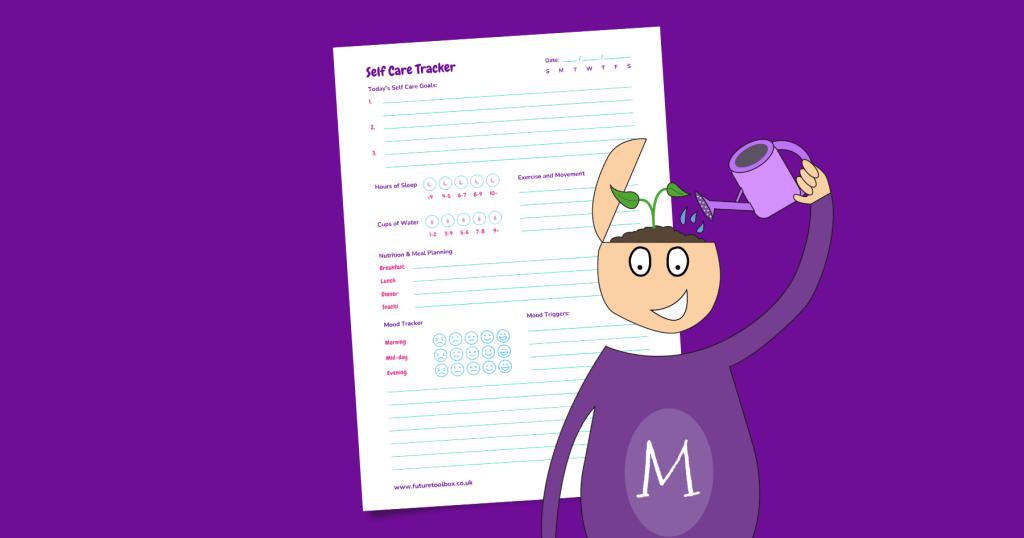
Fun Ways to Embrace the Festive Season
The festive season is often described as “the most wonderful time of the year,” but the reality is that it doesn’t always
This week is National Work Life Week, an annual campaign with the aim of getting people to talk about their wellbeing at work. “This year’s theme is all about discovering what flexible working means to people from all walks of life and in all sorts of job roles.” – Working Families. Most people spend a large amount of their time at work, so creating a good work-life balance is key to feeling happier and more satisfied in life.
We are all unique in our abilities and challenges. What works for some may not always work for others. That is why flexible working can make such a positive impact on your mental health and wellbeing. Our brains need time to recharge and be capable of performing as expected of us, which can only be done through time and self-care.
Many working adults and parents find it hard to maintain a healthy work-life balance. There always seems to be so much to do! Finish your to-do list, support the people around you, get to the appointment and oh can you squeeze in this urgent task… It can be difficult to manage and it’s easy to feel overwhelmed at times. If you’re doing too much, or not looking after yourself it can lead to burnout. Flexible working can help ease the pressure and give you the freedom you need to adapt your routine.
A neurodivergent individual’s experience at work, for example, can be completely different to someone who is neurotypical. They may struggle with sensory overload, time management, social anxiety, and more. Likewise, people living with hidden disabilities face their own challenges too, but we’ll speak more about that later.
If you’re a student with a part-time job, a lot is going on. You are already juggling one or more subjects, completing coursework, and revising exams. Having the flexibility and communication with your employer so you can attend lessons and complete your courses is not only invaluable but also necessary! You need the spare time to breathe between two responsibilities and to have the time to revise and prepare for exams. So, for you, flexible work can offer the freedom of an income with the mental space to succeed in your education!
Are you in a position that is taking too much out of you? Not everyone is capable of 9-5 full-time jobs stuck in an office, five days a week, with 30-60 minutes of break a day. It can feel unusual to ask for any support or changes to your job, but you can! Prepare a statutory application, which can be a written letter or email, requesting reasonable changes.
An employer must respond reasonably in turn, assessing the advantages and disadvantages. Why not get ahead of them? List out why you feel this will not only benefit you but them. For example, by working remotely you can start earlier in the day or feel more energised in your work, hitting targets better than ever. An employer can refuse still for business reasons but requesting can never be used against you, so there’s no harm in trying.
What can flexible work look like? As no job is alike, flexibility can vary but you have plenty of options available to you!
When we set up Future Toolbox, we had some kind of a vision about what being our own bosses meant to us. It would enable us to work when we wanted and allow us to do the nice things that we enjoy, like travel, sport and other hobbies. The idea of not putting in a holiday form to go away was quite appealing!
However, running your own business has its own challenges. Firstly, there isn’t a colleague who can cover for you or, most importantly, be there to bounce ideas off when you’re stuck on something. Deadlines can be stressful too and that can involve working what would be classed as unsocial hours because let’s face it, being able to switch-off from work when you’re in your own home can be hard! Also, being a business owner means you may have to turn your hand to something that you really don’t enjoy doing or have very little experience or comfort in doing.
After taking on all of these new challenges, we were hit by an even bigger one in our personal life. Firstly, Mark suffered a brain injury following a freak accident and, Jules was diagnosed with breast cancer 18 months later. This made us realise that we needed to make some further changes. With a brain injury comes chronic fatigue, that can strike at any time. There are also issues with short-term memory and concentration, which is tough when you’re working in a busy or noisy environment. In fact, most of the symptoms are likened to those of ADHD and similar conditions that involve hidden disabilities. This didn’t just affect Mark, it also had a huge impact on Jules too. Not only did she have to deal with the treatment for breast cancer and the after-effects of that, but she shared the daily challenges of living with someone with a brain injury and has almost become a full-time carer.
After many years of trying to piece together our lives, we looked at ways that we could get it back on track. One question we kept revisiting was, how do we live life on our terms? Not only did we have a business to run but we had to deal with many hidden disability challenges. So, we set about finding out how to remove things that caused stress, anxiety and fatigue. It took a while, but we created a business that we can work on as and when we need to. OK, there are times when things have to be done by a certain time, but we feel that we can relax a little more now. What that also allowed us to do is to make sure that brain injury and its daily challenges don’t own us. If Mark needs a rest or time to switch off, he can do so.
Bringing in experts to support us on mind-stretching tasks has been a key, and also looking at ways to be financially smart, means that money doesn’t have to be the most important factor of the business which certainly eases the pressure. Now, we’re in a good position of work-life balance where we can work on a more part-time basis and enjoy the majority of the work-related tasks that we need to do. The Future Toolbox is a fun company, and it works well for us but, it’s also a successful business… The evidence can be seen in the many awards that we’ve won. Yes, there are times when we can’t believe that the two of us have created something of such value.
As you know, life has many ups and downs! This Thursday World Mental Health Day is also taking place this week on Thursday 10th October. It’s a good time to reflect on the impact work can have on your wellbeing. In 2022, mental health was the fifth* most common reason for sickness absence in the UK, according to the Office for National Statistics. A staggering 875,000 workers experienced work-related stress, depression, or anxiety in 2022/23*. These numbers highlight just how crucial it is to take care of yourself.
Self-care isn’t just a luxury; it’s essential to avoid burnout and keep yourself going. Life is full of unexpected challenges, and taking time for self-care helps build resilience to overcome them. Remember, stress from work can seep into your personal life, just as personal challenges can affect your performance at work. Finding the balance between the two is key to feeling happy and fulfilled.
Incorporating small acts of kindness into your daily routine can make a world of difference. It doesn’t have to be time-consuming – whether it’s taking a short walk, practising mindfulness, or simply enjoying a cup of tea. These little moments can have a big impact on both your mental and physical health.
To help you along the way, download our FREE Self-care Tracker. You can set your daily goals, monitor your sleep, track your water intake, plan balanced meals, and record your mood.

Thank you so much for downloading our Self-care Tracker. We hope it will inspire you to take a moment to focus on your well-being and health.
We’ve sent your FREE download straight to your email inbox. If you can’t seem to find it, don’t worry. It might have found its way into your spam/junk folder so please check in there… you know how technology can be sometimes!
Incorporating small acts of kindness into your daily routine can make a world of difference. It doesn’t have to be time-consuming – whether it’s taking a short walk, practising mindfulness, or simply enjoying a cup of tea. Taking small steps today can make a big difference in your well-being tomorrow!
* Health and Safety Executive. (2023). Health and safety at work: Summary statistics for Great Britain 2023. Available at: https://www.hse.gov.uk/statistics/assets/docs/hssh2223.pdf
Office for National Statistics (ONS), released 26 April 2023, ONS website, article, Sickness absence in the UK labour market: 2022
Follow us on social media!

The festive season is often described as “the most wonderful time of the year,” but the reality is that it doesn’t always

The Christmas countdown has officially begun! You might be feeling the excitement already… the holiday lights are up, your friends are talking

Storytelling is a powerful tool for learning and what better time to celebrate that than the holiday season! A time when we